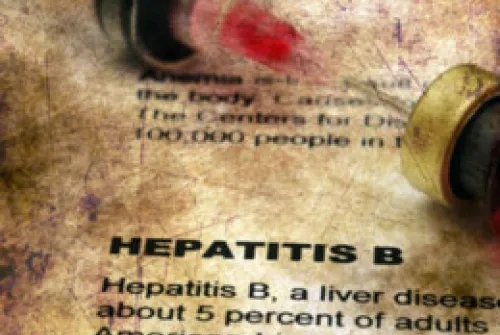Alo Yeditepe
Alo Yeditepe
290 Million People Live Without Knowing They Have Hepatitis
Yeditepe University Hospitals Infectious Diseases and Clinical Microbiology Specialist Prof. Dr. Meral Sönmezoğlu made an important statement due to World Hepatitis Day, stating that 290 million people live without knowing that they have hepatitis.
9 Out Of 10 Patients are Unaware That They Have The Hepatitis Virus
Stating that viral hepatitis is one of the most important health problems worldwide, Prof. Dr. Sönmezoğlu said, "Although hepatitis is a preventable, recognizable, treatable, and even completely eliminable disease, the increase in loss of life due to this reason in recent years draws attention. Although awareness studies have been carried out under the leadership of the World Health Organization, unfortunately, the disease is still not sufficiently recognized. Viral hepatitis B and C, which are also the main causes of liver cancer, affect 325 million people worldwide. Since it can continue for many years without any symptoms, it can lead to liver cancer and cirrhosis. More importantly, 9 out of 10 people with viral hepatitis live without knowing that they have hepatitis B or C. The World Health Organization continues its awareness efforts to prevent this picture by cooperating with all segments of society with the slogan "Find the Missing Millions". It is aimed to reach 30 percent of those who are unaware of their disease by 2020.
In Western Europe, It is Mostly Transmitted by Sex, and in Eastern Countries, It is Transmitted by Unhygienic Conditions
Stating that the hepatitis B virus is transmitted by contact with infected blood or body fluids, Prof. Dr. Sönmezoğlu explained that the frequency of transmission varies according to geographical region and said: "The mode of transmission differs according to geographical regions. In Western European countries, for example, most infections are transmitted by sexual contact with the infected person or by sharing needles and syringes. In Asia and the Middle East, it is usually passed from mother to child or from child to child. Other common contaminants include the common use of personal items such as toothbrushes and razor blades with infected individuals and the use of unsterilized tools for tattooing and piercing."
"You Can Be Protected from Hepatitis B and D By Hepatitis Vaccine"
Stating that the period of newborn and infancy is shown as the period with the highest risk of carrier and chronic hepatitis, Prof. Dr. Sönmezoğlu said, "With the hepatitis B vaccine, it is possible to achieve effective results in preventing the disease. However, there are still 3 and a half million hepatitis B patients in Türkiye. Since 1998, all newborns and those in the risk group have been given a free hepatitis B vaccine by the Ministry of Health. While the number of people infected with this vaccination program in 2000 was around 12 percent, today it has decreased to 4 percent. With the continuation of vaccination, it will be possible to prevent hepatitis D as well as reduce the rate of hepatitis B".
"Almost All of the People with Hepatitis Can Be Treated"
Stating that combined use of needles and syringes, blood transfusions with contaminated blood, or organ transplants from infected people, and hepatitis C can occur at the rate of mother-to-child transmission, Prof. Dr. Sönmezoğlu: "The most common form of transmission in Türkiye is not fully known. After 1996, all blood was screened for hepatitis C, which significantly reduced blood transmission. Although there is no effective vaccine for hepatitis C yet, it should not be forgotten that it has an effective treatment. Almost all patients can be treated with early diagnosis. However, it is estimated that there are approximately 800,000 hepatitis C patients in Türkiye. Hepatitis A virus is also one of the most common causes of acute viral hepatitis in the world. This virus, which is moderately common in Türkiye, can cause epidemics with mostly dirty, contaminated water and nutrients. While it can be passed with mild symptoms in childhood, it is possible to be protected with the vaccine from hepatitis A infection, which can be more severe in advanced ages and cause consequences that can lead to severe liver disease."
Stating that there are some measures to be taken in daily life to protect from hepatitis, Prof. Dr. Sönmezoğlu listed these suggestions as follows:
- Safe blood and safe transfusion principles should be followed in patients who need a blood transfusion.
- Injector needles or finger-piercing needles should be used on one person.
- Items that are tools for blood-borne diseases such as razors, nail clippers, and toothbrushes should be personal and should not be shared in any way.
- In hairdressers and barbershops, sharp piercing materials must be cleaned and disinfected before use.
- It should be remembered that there is a risk of transmission by sexual intercourse and condoms should be used.
- Hepatitis A and B vaccines should be given.
About
Faculty and Year of Graduation:
Medical Faculty of Ankara University, 1984
”
See Also
- What is Hepatitis B? What are its symptoms? How is it Transmitted?
- What is HMPV Virus? HMPV Symptoms and Ways of Transmission
- Why Is the Flu Lasting Longer This Year?
- What Precautions Should Be Taken Against the Cold Epidemic?
- Don't Be Late Fighting Against Diseases
- Antibiotics Kill Beneficial Bacteria, Not Viruses
- What is Hepatitis? What are the Symptoms and Treatment Methods?
- Symptoms and Treatment of Tick Bites
- Summer Infections
- Precautions Must Be Taken Against Loss of Life Due To Infection in Thalassemia
- Information on H1N1 (Swine Flu)
- Summer is Coming... Beware of food poisoning!
- Our Taboos Affect the Increase in the Number of HIV-Positive Cases in Turkey
- Strep A Symptoms and Treatment
- Do Not Put a Cigarette Butt or Pour Olive Oil or Liquid Soap on the Tick
- Reheat the Food You Cooked Only Once!
- HIV Can Be Hidden for 10 Years without Any Symptoms!
- Things to Consider When Touching Meat at Eid
- What Is Anthrax Disease?
- The Way to Fight AIDS is to Raise Awareness First
- Still Not Too Late For Flu Vaccine
- What is Rhinovirus?
- Fighting with Thalassemia: Meral Yılmaz
- Thalassemia Spreads from the Mediterranean to the Whole of Europe with Migration!
- Early Treatment of Crimean Congo Hemorrhagic Fever is Vital
- Approximately 3 Million Patients Need Blood Transfusions Every Year in Turkey
- When to Get the Flu Vaccine
- Antibiotics Account For 14% of Prescription Costs
- West Nile Virus Replaces Malaria
- It Is Necessary to Try to Be Healthy in order to Be Protected
- A New Flu Outbreak is Expected Every 10 Years
- 63% of Vector-Borne Diseases are Caused by Lyme Disease
- Experts Warn About Flu Risk
- Mosquito Infection Risk
- Why aren’t Antibiotics Working Any More?
- The World Raises an “Alarm” on Antibiotic Resistance!
- What is COVID-19?
- The Mask Requirement was Removed and the Importance of Social Distance Increased!
- How to Prevent COVID-19 in School-Going Children
- WHO (World Health Organization) Warns for Antibiotic Resistance!
- Who Is Threatened by Monkeypox?
- Ways to Prevent Coronavirus
- Swine Flu / H1N1
- Life Returns to Normal with Caution
- What is Monkeypox Virus? What Are the Symptoms of the Monkeypox Virus?
- What is Lyme Disease?
- How to Tell if You Have a Mild Coronavirus?
- Pay Attention to These Rules for COVID-19
- Hand Sanitizer Usage Guide
- The Priority Rule for the Protection from Summer Infections is Hygiene
Alo Yeditepe




